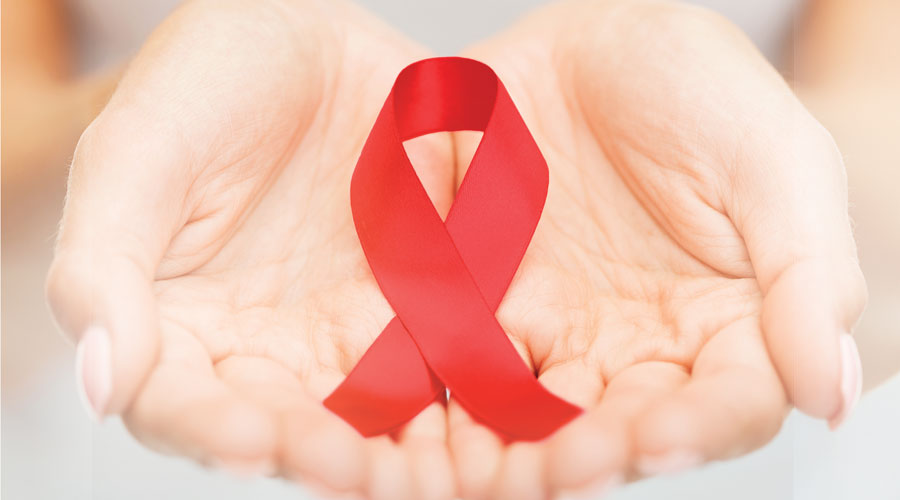Recent advances in antiretroviral drug therapy offer enormous hope to millions living with HIV. For patients who take antiretroviral drugs correctly and maintain a low viral load, life expectancy is very close to that of the general population, a significant achievement that seemed almost impossible 20 years ago.
While HIV treatments have advanced substantially, the need for caring, engaged and service-focused pharmacists to manage those medications has arguably never been greater. This represents an opportunity for independent pharmacies to grow their businesses by helping patients who need life-long drug-related care. It’s also a chance to improve the lives of HIV patients and to make a real contribution to fighting the spread of HIV.
For Gateway Apothecary in St. Louis, Mo., treating HIV patients is familiar ground. Its pharmacists have more than 55 years of combined experience in treating patients with HIV, and the pharmacy has built a reputation for excellence in HIV care.
The growing pharmacy has built that reputation—and its business—through superior care to patients; by working closely with physicians and community organizations; and by specializing its pharmacists’ knowledge through certification and ongoing education.
Gateway Apothecary’s HIV program offers a solid example for how independents can build a business around helping HIV patients. Here’s a look at how they do it.
Certification and specialization
In the city of St. Louis, Mo., there are four certified HIV Pharmacists. Three of those pharmacists work at Gateway Apothecary. Roselyn Santos, R.Ph., Maria Perez, R.Ph., and Stuart Federman, Pharm.D., obtained HIV Pharmacist certification from the American Academy of HIV Medicine (AAHIVM) to better serve their patients.
“I decided to become a certified HIV Pharmacist to further improve my skills and education, and ultimately to give our patients better service,” Santos said. “I now have a better understanding of the treatment options and of related health problems, like opportunistic infections, and their relationship to HIV.”
AAHIVM has offered its Certified HIV Pharmacist credentialing program since 2011, and it remains the primary assessment program for HIV care providers nationally. In 2014, Gateway Apothecary received the Peter M. Fox Excellence in AAHIVM Credentialing Award. This award is given to physician groups, clinics and pharmacies where all eligible practitioners have achieved certification. Of the 18 practices recognized in 2014, Gateway Apothecary was the only pharmacy to receive the award.
Having all of its pharmacists certified has many advantages for Gateway Apothecary, both for the HIV patients the pharmacy serves and for the medical teams involved with treatment.
“More and more MDs, DOs, PAs and MPs depend on their relationships with pharmacists, especially specialist pharmacists, and consult with them about treatment plans,” said Ken South, director of credentialing for the American Academy of HIV Medicine.
“Treating HIV is so driven by good pharmacology; it’s what’s keeping people alive,” he said. “And the fact that it’s changing all the time is all the more reason medical team members would prefer a specialist to consult with about their patients.”
Other ways that the pharmacists at Gateway Apothecary supplement their knowledge include attending conferences and updates on HIV, seeking out continuing education and working closely with researchers at Washington University in St. Louis.
“You need to have your face out there when there’s an event like an update, so people know you are staying abreast of changes in HIV therapy,” said Chris Geronsin, R.Ph., owner and president of Gateway Apothecary. “I’ve been doing it for 20 years, and HIV therapy has changed dramatically. Keeping up with the changes is critical.”
Coordination and connection
 Gateway Apothecary makes it a priority to closely align with all members of patients’ health care teams. That vision of a tightly connected network led the pharmacy to its current location in the central west end of St. Louis, close to Barnes Jewish Hospital, Washington University physicians and clinics, and many HIV treatment centers.
Gateway Apothecary makes it a priority to closely align with all members of patients’ health care teams. That vision of a tightly connected network led the pharmacy to its current location in the central west end of St. Louis, close to Barnes Jewish Hospital, Washington University physicians and clinics, and many HIV treatment centers.
The pharmacy’s prime location has made patient care easier in some cases and has provided opportunities to strengthen ties with patient care teams. “We’ve had times where the patients are in need of something and we basically just walk over to the clinic and talk with the person directly,” Geronsin said.
While a convenient location certainly helps, it’s not the most important factor in forging strong relationships with physicians and care teams. What really counts is doing what you say you’ll do and being a problem solver, Geronsin said.
With the high cost of HIV drugs and the complexities of health insurance, problem solving often involves finding workable solutions to coverage issues. “We work with physicians to make sure that each patient is able to afford the medication as well as working to limit the side effects of the medication,” Gateway Apothecary pharmacist Stuart Federman said.
Sometimes that means thinking outside of the box to make sure patients get the medications they need. “We had a patient come in with a prescription that was a $400 co-pay,” Geronsin said. “There were coupons for $200 off that, but the patient didn’t have the other $200, and wasn’t eligible for foundation assistance. The solution was to break the prescription in two. And there are $200 coupons for each one of those. So, outside-of-the-box thinking and knowing what you can do is so important.”
Reaching out
One standout characteristic of Gateway Apothecary’s approach to treating HIV patients is that its pharmacists operate as part of the community.
For many HIV patients, it isn’t as simple as getting a prescription and filling it. Coverage gaps, prohibitively high co-pays, and sometimes more basic challenges, such as housing and access to a telephone, are issues that can interfere with adherence to treatment.
That’s why Gateway Apothecary works closely with community organizations to connect patients to the help they need. “We work with DOORWAYS, which provides entry-level housing,” Geronsin said. “It was started in the ‘80s when HIV patients had trouble even finding a place to live. We work with case managers and social workers and with the Ryan White HIV/AIDS program.”
Gateway Apothecary also participates on a governmental level. “The mayor of St. Louis has appointed one of our staff to the St. Louis planning council, which covers a lot of issues, such as what drugs and services to cover, budgetary concerns and that type of thing,” Geronsin said.
By establishing close partnerships with organizations in its community, Gateway Apothecary has been able to provide a higher level of care to its patients, and to achieve better adherence rates.
“We do things responsibly,” Geronsin said. “If we see that a patient got a fill on the first of January and they come back to us two months later to get another fill, they’re not being compliant with their drugs. So, we want to work with the patient and all members of the patient’s care team to get back on track. You have to be clinically responsible for your patients.”
A high-touch approach
The team of pharmacists and staff at Gateway Apothecary plays a vital role in helping HIV patients access the medications they need and stick to their treatment, which is so important for HIV patients.
“I’m very proud of (HIV Pharmacists) Rose, Stuart and Maria,” Geronsin said. “They are wonderful pharmacists, but they’re also wonderful people. They care. Everybody can say that they care, but showing it on a daily basis is something that they do and I’m very proud of that.”
Gateway Apothecary pharmacist Maria Perez said it’s important to consistently reach out to patients. “There is a lot of interaction involved when taking care of HIV patients, and compliance is key,” she said. “This is when we help them the most. Our monthly calls serve to remind them about refills, and at the same time are a way to check on how they react to medications, if they experience any side effects, or if there is difficulty taking the medications.
The patients are very protective of their privacy, added Gateway Apothecary pharmacist Roselyn Santos. “Once they sense that you care for them and respect their privacy, they start to trust you and call you for every health issue that they have,” she said. “We help bridge the gap between the patient and the physician.”
That care doesn’t stop at the pharmacy’s door. The pharmacists at Gateway Apothecary are actively involved in community outreach and regularly share their knowledge with high-risk communities to prevent the spread of HIV.
One way they do that is by giving talks to residents of low-income housing and to women over 55, which is one of the fastest-growing groups of new HIV infections.
“We go in, talk to them about HIV and Hepatitis C and then we do testing,” Geronsin said. “When we first started doing this, I thought there wouldn’t be much interest. But the first time we went out, we had 25 test kits and we ran out.”
For those who test positive, the pharmacists at Gateway Apothecary
put them in touch with organizations that can help them. “We don’t just tell people, ‘Oh, you’re HIV positive.’ We connect them to care,” Geronsin said. “Whatever area they need, we connect them to it, and then we follow up to see how they are doing.”
That superior service approach has been the model for Gateway Apothecary’s business. Relationships built out of service to the community and earned trust have translated into business agreements and contracts. By putting the patient first and continually looking for new ways to help, Gateway Apothecary has established itself as the go-to pharmacy for HIV patients in the area.
Related articles:
A Pioneer in HIV Pharmacy
How to Become a Certified HIV Pharmacist
5 Niche Services to Offer at Your Pharmacy












